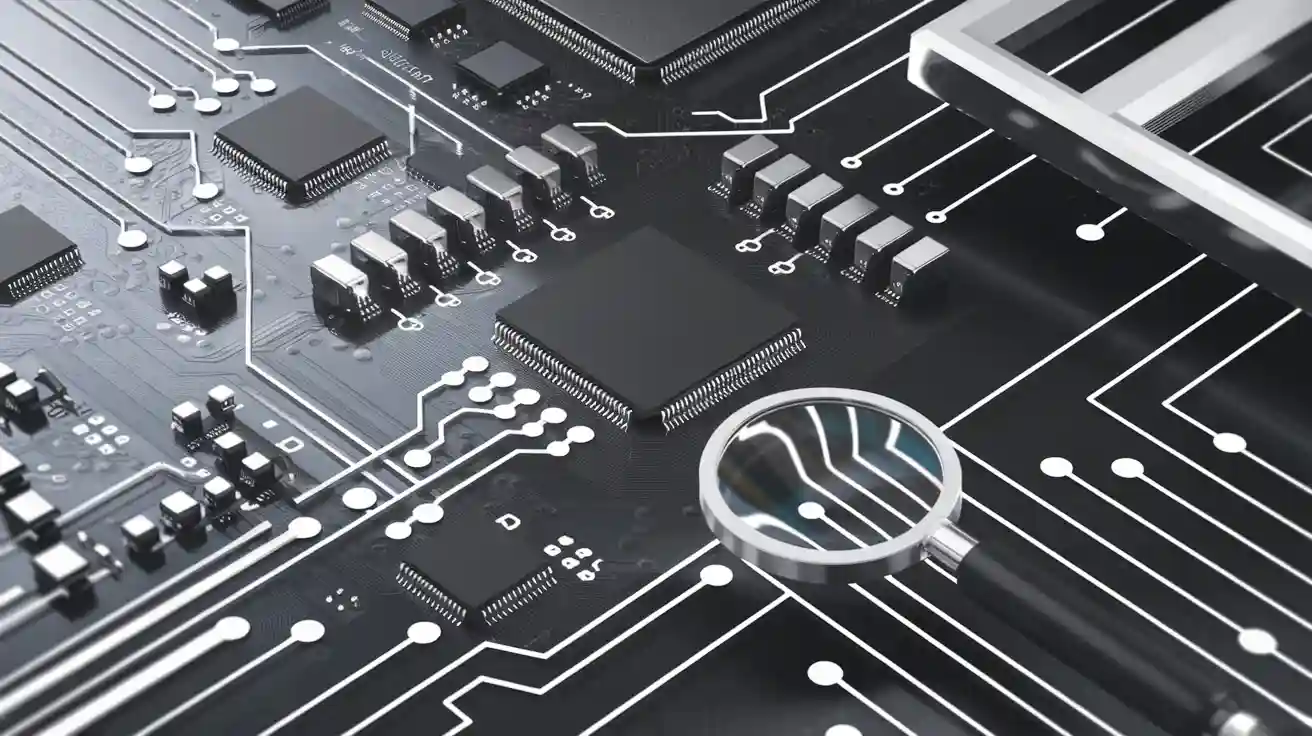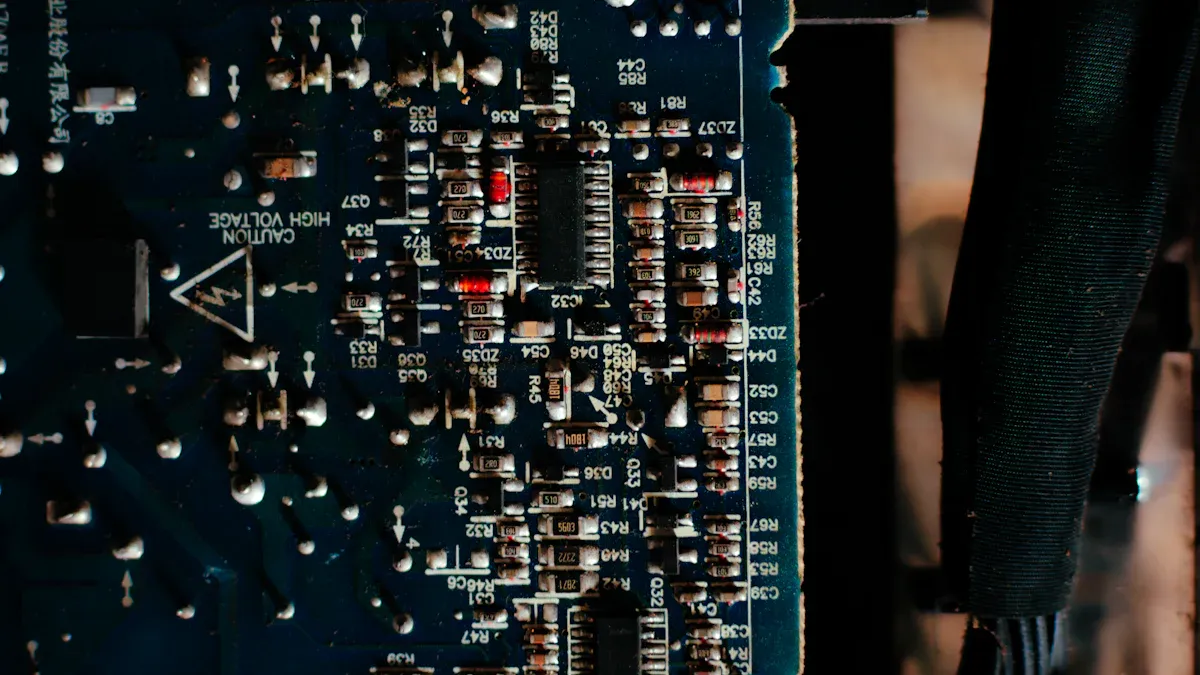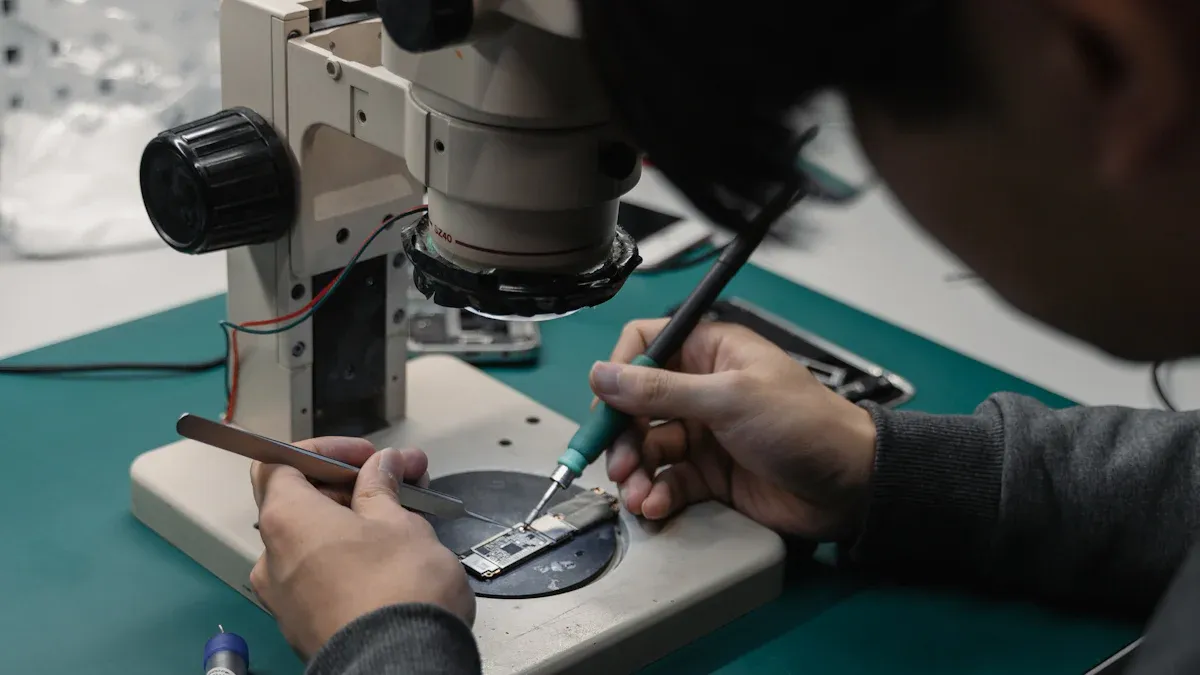Comparing top EMS providers for PCB assembly services
Selecting the right EMS provider plays a crucial role in ensuring the success of your printed circuit board assembly projects. The provider’s expertise directly impacts product quality, manufacturing efficiency, and long-term reliability. As the backbone of modern electronics, PCBs drive advancements in industries like telecommunications, healthcare, and automotive. With increasing demand for consumer electronics and emerging technologies like AI and IoT, the stakes for choosing a capable partner have never been higher.
Comparing top EMS providers for PCB assembly allows you to evaluate their strengths and weaknesses, helping you identify the best match for your specific requirements. Whether you need cutting-edge innovation or cost-effective solutions, understanding these providers ensures your projects align with industry demands and future trends.
Key Takeaways
- Picking the right EMS provider is very important for your PCB assembly projects. Check their skills to ensure good quality and reliability.
- Look at service quality and reliability by checking key performance numbers. Good providers reduce mistakes and deliver on time.
- Think about technology when choosing an EMS provider. New tools can make work faster and improve product quality.
- Focus on saving money without losing quality. Clear pricing helps avoid surprise costs and gives long-term value.
- Choose providers with great customer support. A helpful team makes communication easy and solves problems fast.
Understanding the EMS industry and its role in PCB assembly
Overview of the EMS industry
Electronics manufacturing services (EMS) play a pivotal role in the global supply chain by providing end-to-end solutions for electronic product development. These services encompass design, prototyping, assembly, testing, and even after-market support. EMS providers cater to diverse industries, including automotive, healthcare, telecommunications, and consumer electronics. Their ability to scale production and integrate advanced technologies makes them indispensable for companies aiming to bring innovative products to market efficiently.
The EMS industry has evolved significantly over the years. It now focuses on delivering high-quality, cost-effective solutions while meeting stringent regulatory standards. With the rise of automation and digitalisation, EMS providers are leveraging smart manufacturing techniques to enhance productivity and reduce errors. This transformation ensures that businesses can meet the growing demand for complex and reliable electronic devices.
Importance of printed circuit board assembly in electronics
Printed circuit board assembly (PCBA) serves as the foundation of modern electronics. It enables the integration of various components into a compact and functional design. Without PCBA, the seamless operation of devices like smartphones, medical equipment, and industrial machinery would not be possible.
Key advancements in PCBA highlight its significance in the electronics supply chain:
- Component Miniaturisation: Smaller PCBs with high-density layouts optimise space and performance.
- Flexible and Rigid-Flex PCBs: Ideal for dynamic applications such as wearable sensors and robotics.
- High-Speed and High-Frequency PCBs: Crucial for fast data transfer in automated systems.
- Integration with AI and IoT: Future PCBs will support smarter, self-correcting systems.
- Enhanced Thermal Management: New materials prevent overheating during continuous operations.
- Eco-Friendly PCB Materials: Sustainability is prioritised with biodegradable and recyclable components.
- Automation in PCB Assembly: Automated processes improve quality and reduce costs.
These advancements ensure that PCBA remains at the forefront of technological innovation, driving progress across industries.
Key trends shaping the EMS sector
The EMS sector is undergoing rapid transformation, driven by technological advancements and market demands. Several trends are shaping its future:
- The EMS market is projected to grow from USD 15.42 billion in 2025 to approximately USD 27.31 billion by 2031, reflecting a compound annual growth rate (CAGR) of 8.51%.
- Asia-Pacific is expected to lead this growth due to urbanisation and rising disposable incomes.
- Increased investment in research and development is fostering innovation in manufacturing processes.
- A shift towards eco-friendly practices is encouraging the adoption of sustainable materials and energy-efficient operations.
These trends highlight the dynamic nature of the EMS industry and its critical role in supporting the global electronics ecosystem.
Key criteria for evaluating top EMS providers for PCB assembly
Service quality and reliability
When evaluating EMS providers, service quality and reliability should be your top priority. These factors directly influence the performance and longevity of your products. A reliable partner ensures consistent delivery of high-quality PCBA, minimising errors and delays. To assess reliability, you can examine key performance metrics that quantify service quality.
| Metric | Description |
|---|---|
| Sensitivity | The ability to correctly identify true positives. |
| Specificity | The ability to correctly identify true negatives. |
| Positive Predictive Value | The proportion of true positives among all positive results. |
| Negative Predictive Value | The proportion of true negatives among all negative results. |
| Overtriage | The rate of incorrectly prioritising non-emergency cases as emergencies. |
| Undertriage | The rate of failing to prioritise actual emergencies. |
| Accuracy | The overall correctness of the prioritisation system. |
These metrics provide a structured way to evaluate the dependability of an EMS provider. A focus on reliability ensures that your products meet industry standards, whether they require general assembly or class 3 manufacturing for high-performance applications.
Technological capabilities and innovation
The technological capabilities of an EMS provider determine their ability to handle complex projects. Providers with advanced innovation can streamline processes, reduce costs, and improve product quality. Look for partners with vertical integration, as they manage the entire production process, from design to delivery. This approach enhances troubleshooting and quality control.
Additionally, knowledgeable technical support teams play a crucial role. They address issues promptly, ensuring smooth operations and optimised designs. Providers with cutting-edge capabilities, such as automated assembly and AI-driven quality checks, stand out in the competitive landscape. These features are particularly valuable for projects requiring advanced PCBA solutions.
Pricing and cost-effectiveness
Cost-effectiveness is a critical factor when selecting an EMS provider. While competitive pricing is important, it should not come at the expense of quality or reliability. Evaluate the provider’s pricing structure to ensure it aligns with your budget without compromising on essential services.
Transparent pricing models help you avoid hidden costs and unexpected expenses. Additionally, providers offering scalable solutions can adapt to your project’s needs, whether you require small-scale prototyping or high-volume production. Striking the right balance between cost and quality ensures long-term value for your investment.
Customer support and responsiveness
Customer support plays a vital role in your experience with an EMS provider. A responsive and knowledgeable support team ensures smooth communication and quick resolution of issues. When evaluating top EMS providers for PCB assembly, you should assess their ability to provide timely updates, address concerns, and offer technical guidance. This is especially important for projects requiring class 3 manufacturing, where precision and reliability are critical.
You can gauge a provider’s responsiveness by examining their communication channels. Providers offering multiple options, such as email, phone, and live chat, make it easier for you to reach them. Additionally, look for partners that assign dedicated account managers. This approach ensures personalised support and a deeper understanding of your project requirements.
Another key factor is the availability of after-sales support. A reliable EMS partner will assist you even after project completion, helping you address any post-production challenges. This level of commitment reflects their dedication to customer satisfaction and long-term collaboration.
Financial stability and reputation
The financial stability of an EMS provider directly impacts their ability to deliver consistent results. A financially secure partner can invest in advanced technologies, maintain a skilled workforce, and meet production deadlines. You should review their financial history, annual reports, and market performance to ensure they have the resources to support your projects.
Reputation is equally important when selecting a provider. Established providers with a strong track record often demonstrate higher reliability and professionalism. You can evaluate their reputation by reviewing customer testimonials, industry awards, and certifications. Providers with ISO certifications or compliance with IPC standards showcase their commitment to quality and industry best practices.
Choosing a financially stable and reputable EMS provider ensures your PCBA projects are in capable hands. This decision minimises risks and enhances the likelihood of successful outcomes.
Comparing top EMS providers for PCB assembly
Celestica: Strengths, weaknesses, and unique offerings
Celestica stands out as one of the top EMS providers for PCB assembly, offering a comprehensive range of services tailored to meet diverse industry needs. Its global footprint ensures access to advanced manufacturing facilities and a robust supply chain. You can rely on Celestica for high-quality PCB assembly, especially for industries like aerospace, healthcare, and telecommunications.
Strengths
- Global Reach: Celestica operates in multiple regions, enabling efficient logistics and reduced lead times.
- Technological Expertise: The company invests heavily in automation, AI-driven quality control, and advanced PCB assembly techniques.
- Customisation: Celestica excels in providing tailored solutions, ensuring your specific project requirements are met.
- Sustainability Initiatives: The company prioritises eco-friendly practices, including energy-efficient operations and recyclable materials.
Weaknesses
- Cost: Celestica’s premium services often come with higher pricing, which may not suit cost-sensitive projects.
- Complex Onboarding: The initial setup process can be time-consuming due to the company’s rigorous quality assurance protocols.
Unique Offerings
Celestica’s focus on innovation sets it apart. Its proprietary tools for design optimisation and predictive analytics ensure efficient production. Additionally, the company’s expertise in high-reliability applications makes it a preferred choice for mission-critical projects.
Tip: If your project demands cutting-edge technology and global scalability, Celestica could be the ideal partner.
Plexus: Strengths, weaknesses, and unique offerings
Plexus has earned a reputation for its customer-centric approach and strong engineering capabilities. This EMS provider specialises in complex PCB assembly projects, making it a go-to choice for industries like medical devices, industrial automation, and defence.
Strengths
- Engineering Excellence: Plexus offers robust design and development support, ensuring seamless integration of components.
- Flexibility: The company adapts to both small-scale prototyping and large-scale production, catering to diverse project needs.
- Regulatory Compliance: Plexus adheres to stringent industry standards, including ISO and IPC certifications.
- Customer Support: Dedicated account managers provide personalised assistance, ensuring smooth communication throughout the project lifecycle.
Weaknesses
- Limited Global Presence: Compared to larger competitors, Plexus has fewer manufacturing facilities, which may impact logistics for some regions.
- Lead Times: The focus on precision and quality can sometimes result in longer production cycles.
Unique Offerings
Plexus excels in managing highly regulated projects. Its expertise in navigating complex compliance requirements ensures your products meet all necessary certifications. The company’s focus on collaborative partnerships fosters long-term relationships with clients.
Note: Choose Plexus if your project involves intricate designs or requires strict adherence to regulatory standards.
Zollner Electronics: Strengths, weaknesses, and unique offerings
Zollner Electronics is a family-owned EMS provider with a strong emphasis on innovation and quality. Its European roots and global operations make it a reliable partner for PCB assembly across various industries, including automotive, industrial electronics, and renewable energy.
Strengths
- Innovation-Driven: Zollner invests in cutting-edge technologies like Industry 4.0 and smart manufacturing.
- Vertical Integration: The company manages the entire production process, ensuring high levels of quality control.
- Sustainability: Zollner incorporates eco-friendly practices, aligning with global sustainability goals.
- Industry Expertise: The company has extensive experience in automotive and industrial applications, making it a trusted name in these sectors.
Weaknesses
- Regional Focus: Zollner’s operations are heavily concentrated in Europe, which may limit accessibility for clients in other regions.
- Pricing: The emphasis on innovation and quality often results in higher costs, which may not suit budget-conscious projects.
Unique Offerings
Zollner’s commitment to smart manufacturing and digitalisation ensures efficient and error-free PCB assembly. Its expertise in handling complex, high-volume projects makes it a preferred choice for large-scale industrial applications.
Insight: Zollner Electronics is ideal for projects requiring advanced manufacturing techniques and a focus on sustainability.
Kingfieldpcb: Strengths, weaknesses, and unique offerings
Kingfieldpcb specialises in providing high-quality PCB assembly services for automotive applications. Its focus on connectivity solutions makes it a trusted partner for projects requiring advanced communication systems. You can rely on King Field for precision and reliability, especially in projects involving infotainment systems and vehicle networking.
Strengths
- Automotive Expertise: King Field has a deep understanding of automotive requirements, ensuring compliance with industry standards like ISO/TS 16949.
- Focus on Connectivity: The company excels in producing PCBs for communication systems, including high-speed data transmission and wireless technologies.
- Global Presence: King Field operates manufacturing facilities in Europe, Asia, and North America, ensuring efficient logistics and support.
- Sustainability Commitment: The company integrates eco-friendly practices, such as energy-efficient production and recyclable materials.
Weaknesses
- Limited Industry Scope: MD Elektronik primarily focuses on automotive applications, which may not suit projects in other sectors like healthcare or telecommunications.
- Cost Structure: The emphasis on high-quality materials and advanced technologies often results in higher pricing, making it less suitable for cost-sensitive projects.
Unique Offerings
MD Elektronik’s expertise in automotive connectivity solutions sets it apart. Its ability to deliver high-speed, reliable PCBs for vehicle communication systems ensures seamless integration with modern automotive technologies. The company’s focus on innovation and sustainability further enhances its appeal for environmentally conscious projects.
Insight: If your project involves automotive applications requiring advanced connectivity, MD Elektronik offers unmatched expertise and reliability.
4FRONT Solutions: Strengths, weaknesses, and unique offerings
4FRONT Solutions is a versatile EMS provider known for its customer-centric approach and adaptability. It caters to a wide range of industries, including industrial automation, consumer electronics, and medical devices. You can count on 4FRONT Solutions for flexible and scalable PCB assembly services tailored to your specific needs.
Strengths
- Customisation: 4FRONT Solutions excels in providing tailored PCB assembly services, ensuring your unique project requirements are met.
- Scalability: The company adapts to both small-scale prototyping and high-volume production, making it suitable for projects of varying sizes.
- Technological Innovation: 4FRONT Solutions invests in advanced manufacturing techniques, including automated assembly and AI-driven quality checks.
- Customer Support: Dedicated account managers ensure smooth communication and personalised assistance throughout the project lifecycle.
Weaknesses
- Regional Focus: The company’s operations are primarily concentrated in North America, which may limit accessibility for clients in other regions.
- Limited High-End Capabilities: While versatile, 4FRONT Solutions may lack the specialised expertise required for highly complex or regulated projects.
Unique Offerings
4FRONT Solutions stands out for its flexibility and customer-centric approach. Its ability to adapt to diverse project requirements makes it a reliable partner for both prototyping and production. The company’s focus on innovation ensures efficient and high-quality PCB assembly.
Tip: Choose 4FRONT Solutions if you need a flexible EMS provider capable of handling projects of varying scales with a strong emphasis on customer satisfaction.
Use cases for top EMS providers
Best for high-volume production
When your project demands high-volume production, selecting an EMS provider with scalable infrastructure is essential. Companies like Xiaomi have demonstrated how leveraging such providers can lead to global success. Xiaomi, for instance, partnered with EMS providers in China to produce smartphones and IoT devices at scale. This approach enabled them to launch products globally while maintaining competitive pricing.
High-volume production requires providers with robust supply chains, advanced automation, and efficient logistics. Celestica and Zollner Electronics excel in this area. Their global presence and investment in smart manufacturing ensure consistent quality and timely delivery. These providers also offer vertical integration, which streamlines the entire production process from component sourcing to final assembly.
Tip: If your project involves mass production, focus on providers with proven scalability and a strong track record in handling large orders.
Best for prototyping and small-scale projects
Prototyping and small-scale projects require flexibility and quick turnaround times. EMS providers like Plexus and 4FRONT Solutions specialise in these areas. Plexus, for example, supports rapid prototyping by offering robust design and development services. This capability ensures seamless integration of components and faster iterations.
DJI, a leader in consumer and industrial drones, utilised Shenzhen’s local EMS ecosystem for rapid prototyping. This strategy allowed them to innovate quickly and dominate the global drone market. Providers with expertise in prototyping often offer tailored solutions, enabling you to refine your designs before scaling up production.
Insight: For prototyping, choose a provider with strong engineering support and the ability to adapt to evolving project requirements.
Best for advanced technological requirements
Projects with advanced technological needs demand EMS providers with cutting-edge capabilities. MD Elektronik and Zollner Electronics stand out in this category. MD Elektronik’s expertise in automotive connectivity ensures high-speed, reliable PCBs for vehicle communication systems. Similarly, Zollner’s focus on Industry 4.0 and smart manufacturing supports complex, high-tech applications.
Anker, known for chargers and portable batteries, benefits from EMS providers skilled in component sourcing and system integration. These partnerships ensure high product quality and quick market releases. Providers with advanced technological capabilities often employ AI-driven quality checks and automated assembly processes, ensuring precision and efficiency.
Note: For projects requiring advanced technology, prioritise providers with a strong focus on innovation and industry-specific expertise.
Best for cost-sensitive projects
Cost-sensitive projects demand EMS providers that balance affordability with quality. You need a partner who can optimise production costs without compromising on reliability or performance. Providers like 4FRONT Solutions and Plexus excel in this area, offering scalable solutions tailored to your budget constraints.
Key Features to Look For:
- Transparent Pricing Models: Avoid hidden fees by choosing providers with clear cost structures.
- Scalable Production: Opt for partners who can adjust production volumes to match your financial goals.
- Efficient Supply Chains: Providers with strong supplier networks can reduce material costs.
4FRONT Solutions stands out for its ability to deliver high-quality PCB assembly at competitive prices. Its focus on automation and lean manufacturing processes ensures cost efficiency. Similarly, Plexus offers flexible pricing options, making it ideal for small-scale projects or startups.
Tip: When evaluating cost-sensitive providers, request detailed quotes and compare their value-added services. This ensures you get the best return on investment.
By selecting a provider with a proven track record in cost management, you can achieve your project goals without exceeding your budget.
Best for long-term partnerships
Long-term partnerships with EMS providers foster stability and mutual growth. You benefit from consistent quality, streamlined communication, and a deeper understanding of your project needs. Providers like Celestica and Zollner Electronics are renowned for building enduring relationships with their clients.
Advantages of Long-Term Collaboration:
- Customised Solutions: Providers adapt to your evolving requirements over time.
- Improved Efficiency: Familiarity with your processes reduces lead times and errors.
- Strategic Alignment: Long-term partners align their capabilities with your business goals.
Celestica’s global presence and commitment to innovation make it a reliable choice for sustained collaboration. Its focus on sustainability and advanced technologies ensures your projects remain competitive. Zollner Electronics, with its expertise in vertical integration, offers seamless production and exceptional quality control, making it a trusted partner for large-scale industrial applications.
Insight: Prioritise providers with a strong reputation for customer retention and adaptability. This ensures a partnership that evolves alongside your business.
By investing in a long-term relationship, you secure a dependable partner who supports your growth and innovation efforts.
Choosing the right EMS provider for PCB assembly is crucial for the success of your project. Each provider offers unique strengths, from Celestica’s global scalability to MD Elektronik’s automotive expertise. Zollner Electronics excels in innovation, while Plexus and 4FRONT Solutions provide flexibility for prototyping and cost-sensitive projects.
Recommendation:
- For high-volume production, prioritise providers with robust infrastructure like Celestica or Zollner.
- For prototyping or small-scale needs, consider Plexus or 4FRONT Solutions.
- Advanced technological requirements align well with MD Elektronik or Zollner.
Align the provider’s capabilities with your project’s goals. This ensures efficiency, quality, and long-term success.
FAQ
What is the difference between EMS and OEM providers?
EMS providers focus on manufacturing and assembling electronic products for other companies. OEM providers design and produce their own branded products. If you need PCB assembly services without product design, EMS providers are your best choice.
How do I determine the right EMS provider for my project?
Evaluate providers based on service quality, technological capabilities, pricing, customer support, and reputation. Match their strengths to your project’s requirements. For example, choose Celestica for high-volume production or Plexus for prototyping.
Can EMS providers handle small-scale projects?
Yes, many EMS providers specialise in prototyping and small-scale production. Plexus and 4FRONT Solutions excel in this area, offering flexible services tailored to your needs. Their expertise ensures quick turnaround times and high-quality results.
Are EMS providers suitable for cost-sensitive projects?
Absolutely. Providers like 4FRONT Solutions optimise production costs through automation and lean manufacturing. Request detailed quotes to compare pricing structures and ensure affordability without compromising quality.
Why is financial stability important when selecting an EMS provider?
Financial stability ensures consistent service delivery, investment in advanced technologies, and adherence to deadlines. Providers with strong financial health, like Celestica, minimise risks and guarantee reliable outcomes for your PCB assembly projects.























